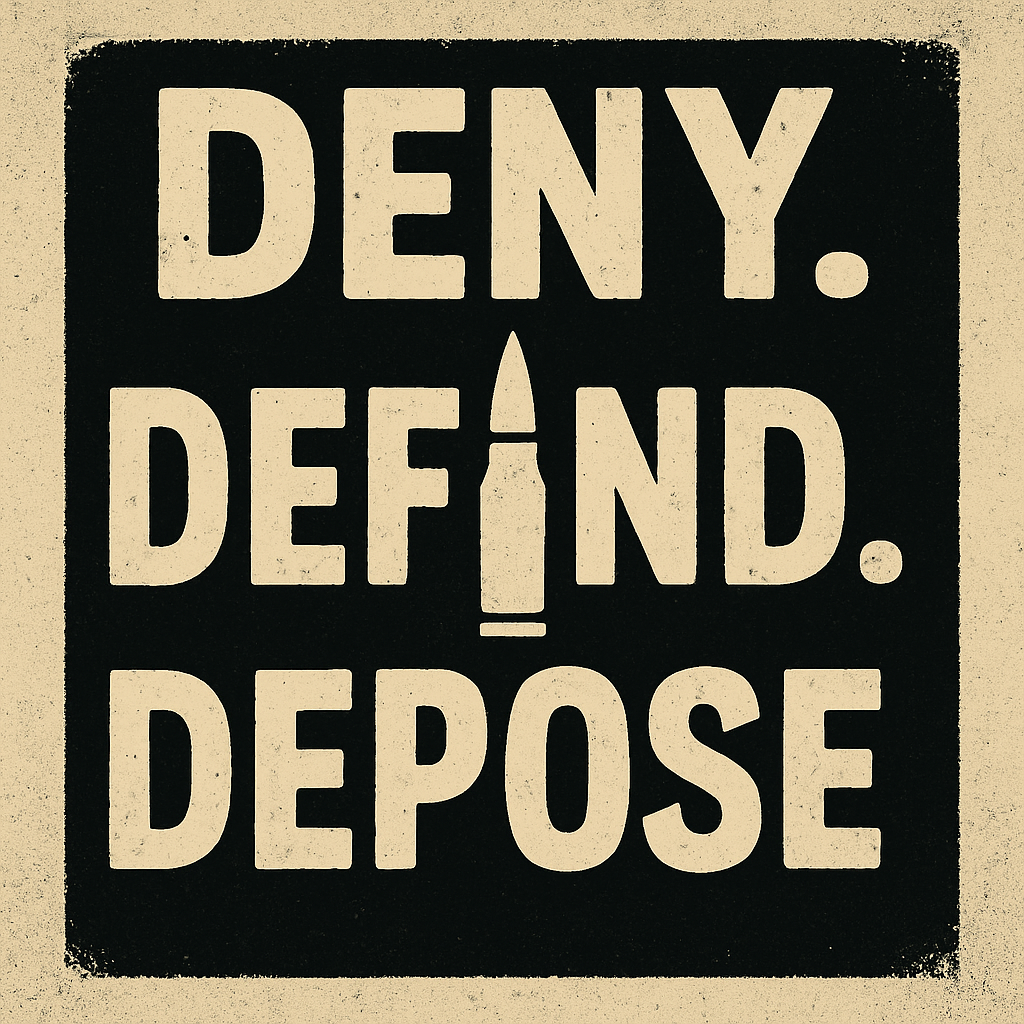🧷 The Words on the Bullets: “Deny. Defend. Depose.” Enters National Consciousness
On December 5, 2024, journalist Ivy Griffith published a viral report titled “Deny, Defend, Depose” May Have Been Found on Bullets From UnitedHealthcare Shooting — Here's the Meaning. The article explores the chilling possibility that UnitedHealthcare CEO Brian Thompson was not only targeted—but that his killer left behind a message:
Deny. Defend. Depose. Engraved into bullet casings.
Immediately, speculation ignited across Reddit, Twitter, and news outlets. But one Redditor, Vulkyria, provided context that struck a cultural nerve:
“It’s a change-up of the book title, Delay. Deny. Defend. Why Insurance Companies Don’t Pay Claims and What You Can Do About It. by Jay M. Feinman.”
They concluded:
“This is the beginning of the resistance. It should be turned into a bumper sticker. Deny. Defend. Depose. Repeat.”
The Phrase Is Now National This article marks a turning point:
The phrase “Deny. Defend. Depose.” has entered the national vocabulary—through tragedy, through anger, and through recognition.
Ivy Griffith’s reporting confirms what many of us have lived firsthand:
The phrase is not random.
The phrase has a history.
The phrase is being read, understood, and repeated—because it names something real.
Echoes of Feinman. Echoes of the System. As Griffith notes, the phrase echoes legal scholar Jay M. Feinman’s seminal book: Delay. Deny. Defend. — a definitive analysis of how insurers systematically obstruct policyholders.
The alleged shooter’s altered phrasing—“Deny. Defend. Depose.”—tightens that formula into a courtroom escalation strategy. It exposes how the industry transforms suffering into policy—and policy into a wall no ordinary person can scale.
Protest or Warning? While the attack has rightly been condemned, the presence of these words at the crime scene has opened a dangerous question: Was this simply a slogan—or a verdict?
Griffith quotes both fear and fascination. While New York officials worked to assure the public this was a “targeted attack,” the phrase itself sparked broader dread—not just of more violence, but of what the words reflect.
“Deny. Defend. Depose.” has now crossed from litigation strategy to cultural symbol. And no one—not UnitedHealthcare, not law enforcement, not the public—can claim it’s unfamiliar.
📎 Preserved Copy: Distractify, Ivy Griffith — “Deny, Defend, Depose” Bullets Found in UnitedHealthcare Shooting (Dec. 5, 2024)
📖 Original Article: https://www.distractify.com/p/deny-defend-depose-meaning-unitedhealthcare


